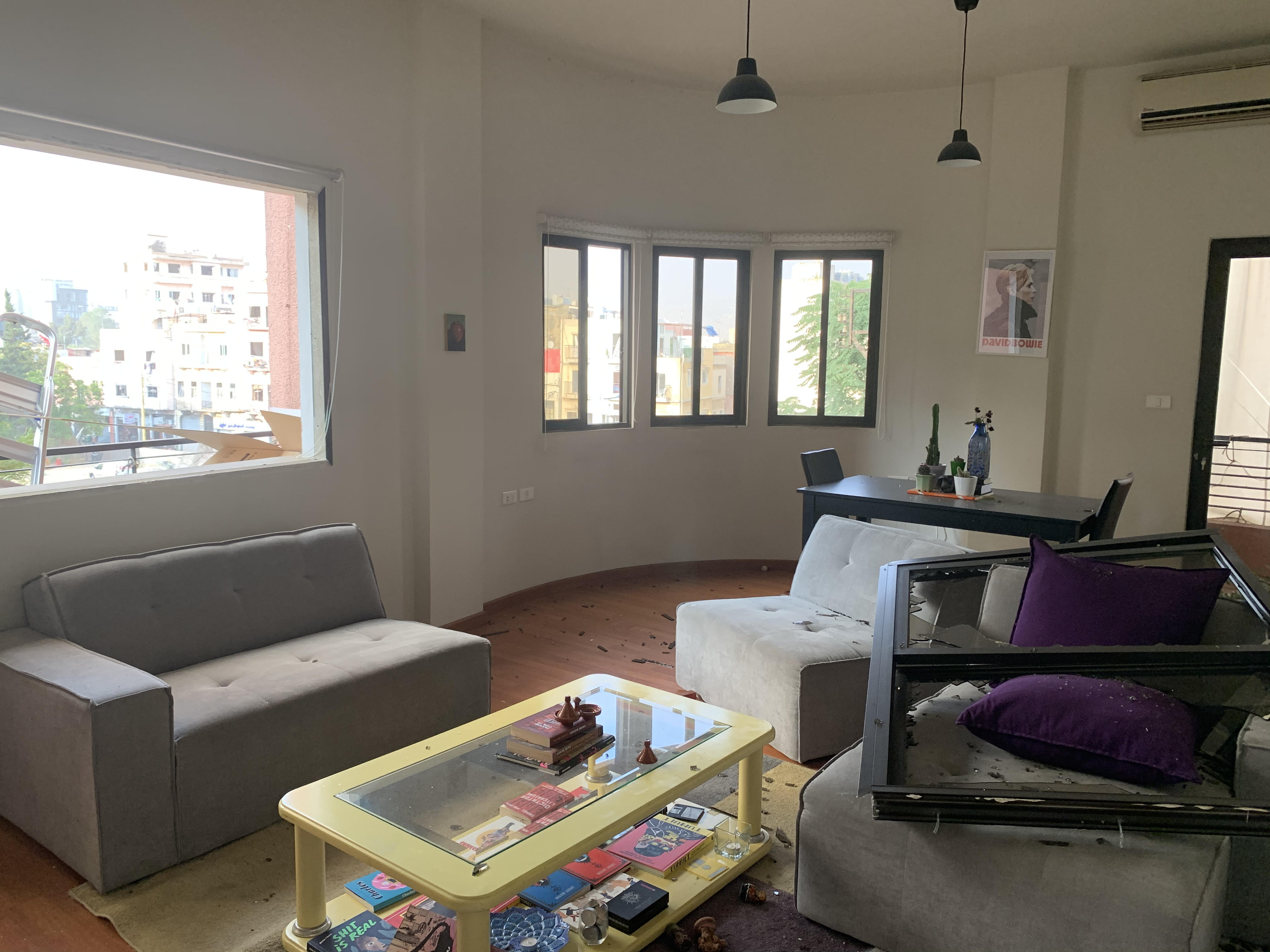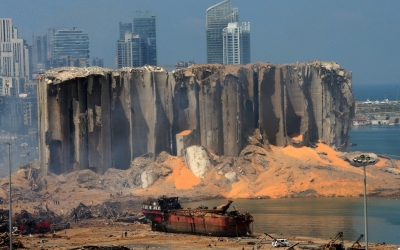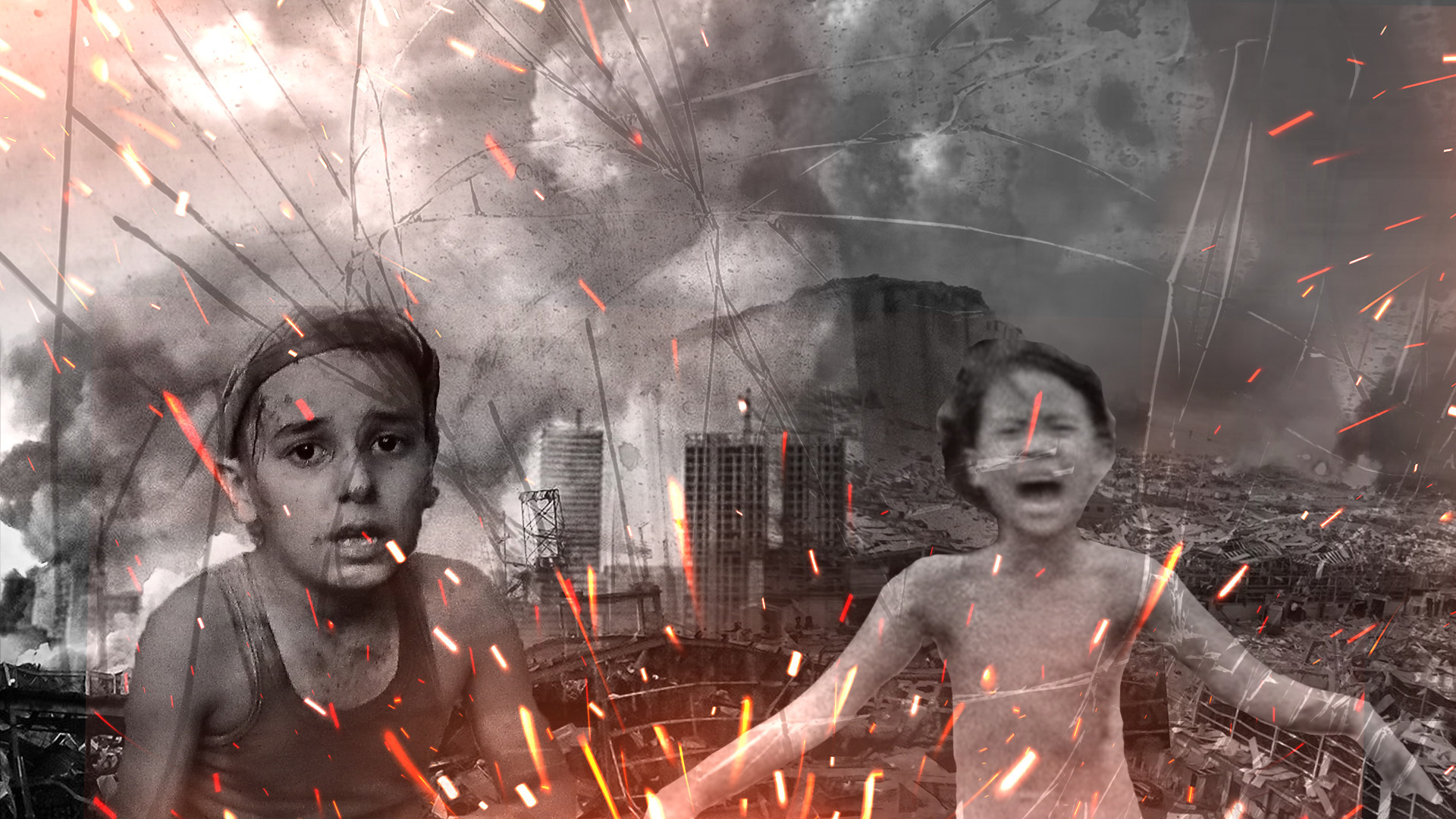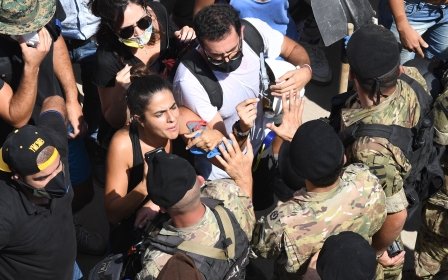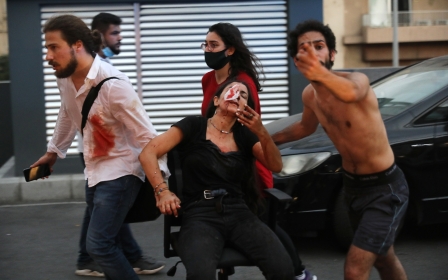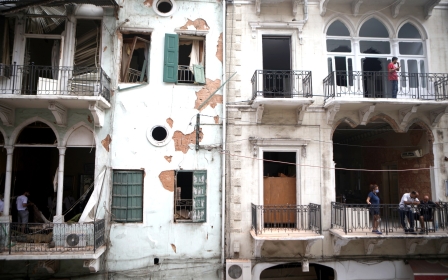Beirut explosion: My heart is breaking, but there's no time to mourn

I am writing this on a dust-covered laptop. The keys are jamming. I have been ruminating over each sentence, unsure as to why I agreed to write this piece.
4 August 2020. Two days prior, I had celebrated my 34th birthday. I had been battling debilitating depression and had been isolated for days. My friends insisted that they come see me, and I was finally starting to feel better - dare I say, even a little bit hopeful. The pandemic was not going to stop me. My devalued salary was not going to stop me. I was determined to be happy.
I can still see and hear the explosion. It is constantly replaying in my head. I am terrified
That day, 4 August, began like any other day. I woke up, made myself coffee, prepared breakfast (the usual peanut butter and jelly) and even placed some fruit on my tray. I read the news and checked my emails. I even checked my Tinder app and flirted up a storm. Tuesday was looking good.
Around noon, I got on a Webex meeting with my colleagues, and we discussed business as usual. I had lunch, tried to nap unsuccessfully, and hopped into the shower. I decided to sloth around a little bit in my bedroom, naturally drying in a blue bathrobe that a friend had left behind. All of this seems so mundane now.
Around 6pm, I heard strange, loud sounds. I got up from my bed and made my way to the living room. I opened a window and popped my head out. I was intrigued and scared. Were we being bombed? What fresh hell was this?
All of a sudden, there was a blinding light; an earsplitting sound; a strong, circular, concentrated, broiling blast of air. It slapped me across the face and blew me backwards. I don’t know which of my senses reacted first.
Around me, my living room exploded all at once. A window in its entirety, glass and all, slammed against the wall, shattered into a thousand pieces, and came to rest on my couch. It took my cheap IKEA lamp down with it. The curtain tore off and flew across the room; the TV unplugged and fell face down. Both balcony doors blew open, like a scene from The Exorcist.
Shards of glass, thousands of little pieces, embedded themselves in the wall behind me, in the floor and in the furniture. I am not sure when I started running towards the front door. I am not sure whether I screamed; everyone tells me that I must have. I must have.
Yellow, orange and red
Barefoot, I ran over the glass with no regard for my own skin. I ran to my front door, which was blasted open. I hysterically pushed it closed. I ran to my bedroom, stood, looked around. I was bewildered. What does one wear in a situation like this?
I ran my fingers and my hands over my body and my face. I was not injured. Dear God, I was not injured. I ran down to my neighbours’ apartment, screaming. What happened? My elderly neighbour, a witness to Lebanon’s many wars and civil strife, was shrieking in pure hysteria. Her daughter, carrying a baby, was crying unrestrainedly. I had not cried yet.
I ran back up to my apartment to find my cat. He was hiding in the corner of my open closet, under all my shirts, like a child on time-out. I ran down again.
On the street, everything was yellow, orange and red. The air was thick with ammonium nitrate, a fact of which I was blissfully unaware. Screaming. All I heard was screaming. It was like a scene out of any movie about the Vietnam War. Everyone looked like Phan Thi Kim Phuc, the Napalm Girl. They were screaming, walking or running towards me.
I was dazed. Turning in circles, I looked towards Gemmayze; all I saw was a large, ominous cloud. A black Jeep with blown-out windows parked by me. Inside was a woman with cuts on her face and blood down her arms. We looked at each other intimately, like we had known each other for years. Two strangers in the midst of a pandemic, we held hands and started sobbing uncontrollably. It was the first time I cried.
Covered in dust
When I finally checked my phone, hundreds of messages and calls were pouring through. Mel. Mel. Mel. Where are you? Are you okay? Friends, family, students, acquaintances, colleagues. I am okay. I am okay. I am okay. I convulsively gasped voice notes to everyone. I love you. I am okay.
A friend rushed to me on his motorbike. We climbed the stairs back up to my apartment. I packed the bare minimum: my wallet, phone charger and some underwear in a big black garbage bag, and I headed to my parents’ home. I don’t remember getting there.
I felt dead inside, exhausted, shell-shocked, traumatised - guilty that I survived only with material damage
I watched the news with my mom and dad. I had no idea of the extent of the damage to Beirut - the human cost incurred. I climbed into my childhood bed, sweaty, smelly and covered in dust. I hid under the covers. My head hurt, and my heart hurt even more. I laid wide awake, eyes darting back and forth in the darkness.
The next day, I realised this nightmare had actually happened. I felt dead inside, exhausted, shell-shocked, traumatised - guilty that I survived only with material damage. I couldn’t eat or sleep, and hadn’t showered or even brushed my teeth. I couldn’t imagine engaging in such mundane activities.
Sleepless nights
Today, my heart is breaking inside my ribcage. I can still see and hear the explosion. It is constantly replaying in my head. I am terrified. I don’t feel resilient. I can’t organise my thoughts. I feel so guilty, torn between wanting to help my neighbours or pick up the pieces of my broken home.
I have no time to mourn. We have no time to mourn. My cat has not budged in days; his food, water and litter box remain untouched. I want to sleep, but all I can hear is shattered glass, grazing against my brain. My fellow citizens are already cleaning up, doing the job that the criminal government is supposed to do.
We have no time to mourn. I feel so much love for them. They remind me that there are still things to love in this country.
The views expressed in this article belong to the author and do not necessarily reflect the editorial policy of Middle East Eye.
Middle East Eye propose une couverture et une analyse indépendantes et incomparables du Moyen-Orient, de l’Afrique du Nord et d’autres régions du monde. Pour en savoir plus sur la reprise de ce contenu et les frais qui s’appliquent, veuillez remplir ce formulaire [en anglais]. Pour en savoir plus sur MEE, cliquez ici [en anglais].



